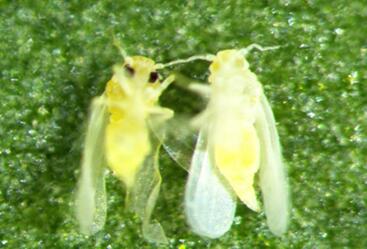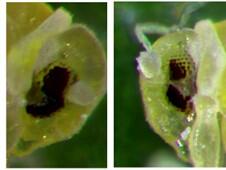My research focuses on developing and implementing genetic control strategies in pest insects. These area-wide strategies provide environmentally friendly alternatives to the use of conventional approaches, such as chemical insecticides. My early work identified new transposable elements which were used to introduce genetic sequences into pest insects, such as mosquitoes, as well as into human cell culture. CRISPR-based technology now provides the specificity needed to generate targeted changes to pest insect genomes and so has been transformative in its application to genetic control approaches.
For the past six years my research has focused on agricultural pests of the Hemiptera which have largely proven relatively refractory to conventional genetic analyses. The whitefly Bemisia tabaci presents an ideal and challenging opportunity. It is a significant global pest of agriculture and has a life cycle amenable to genetic manipulation. Remarkably, not even classical genetic approaches have been attempted in it. I teamed with Professor Linda Walling from the Botany & Plant Sciences Department, and we developed key technologies that enable the genetic manipulation of this important pest. Whitefly embryos are less than 0.1 mm in length, have a very sticky and thick chorion, and are attached to the leaf from which they imbibe water leading to a significant internal pressure. Solving this required us to invent a new process by which insect embryos are microinjected and subsequently reared. In doing so Professor Walling and I developed a novel leaf disc technology which enables the entire life cycle of the insect to be completed on a small leaf disc within an incubator which provides a cost and space effective means of maintaining multiple genetic strains for which we were awarded a patent. We have succeeded in generating CRISPR-mediated knock out mutations in B. tabaci. We have started to lay the foundations of gene drive strategies in this species. In terms of interactions with the plant hosts we are pursuing effector proteins in the salivary glands that interact with the plant hosts immune response. For multiple reasons, not least of which is the stunning transparency of the sessile nymphs, B. tabaci may well prove to be an excellent model for the both the genetic manipulation of Hemiptera pests and for studying the molecular biology and biochemistry of insect-plant interactions.


We have extended our success with establishing novel microinjection strategies for whitefly into the glassy-winged sharpshooter (GWSS), Homalodisca vitripennis. We teamed with Professor Rick Redak from the Entomology Department and with Professor Jason Stajich from the Microbiology & Plant Pathology Department on this project. We developed an embryo microinjection strategy for GWSS, obtained high frequency mutagenesis at two loci, white and cinnabar, and established pair matings to demonstrate that both loci are not sex-linked. We also provided evidence for the involvement of the pteridine pathway in wing vein and cell pigmentation. We then extended our approach into gain of function mutations in GWSS using both homology-directed DNA repair and CRISPaint approaches. We achieved both at high frequencies, an average of 10% and 60% respectively. These represent the first examples of CRISPR-mediated knock-in, gain of function mutagenesis in GWSS.
Awards and Appointments:
2023 - present
Interim Dean, College of Natural and Agricultural Sciences, UC Riverside
2022 - 2025
Managing Editor, Comprehensive Insect Molecular Science, 2nd edition. Elsevier
2022 - 2023
Chair, UC Riverside Senate Committee on Planning & Budget
2021 - 2022
Vice-chair, UC Riverside Senate Committee on Planning & Budget
2020 - 2023
Member, UC Riverside Senate Committee on Planning & Budget
2018 - 2022
Chair, Institutional Biosafety Committee, Office of Research and Economic Development, UC Riverside
2013 - 2017
Divisional Dean, Life Sciences & Facilities, College of Natural and Agricultural Sciences, UC Riverside
2012 - 2013
Associate Dean, Life Sciences & Facilities, College of Natural and Agricultural Sciences UC Riverside
2010 - 2023
Editorial Board: Mobile DNA
2009
ESA Recognition award in Insect Physiology, Biochemistry and Toxicology
2008 - 2012
Director, Cell, Molecular and Developmental Biology Graduate Program, UC Riverside
2006 - 2014
Director, UC Riverside Center for Disease Vectors Research
2003 - present
Professor, Department of Entomology, UC Riverside
2004
Associate Director, UC Riverside Institute for Integrative Genome Biology
2003
Interim Director, UC Riverside Genomics Institute
2003
Sabbatical Leave
2001 - 2003
Associate Director, UC Riverside Genomics Institute
2000 - present
Editorial Board: Insect Biochemistry and Molecular Biology
2000 - 2015
Editorial Board: Insect Molecular Biology
